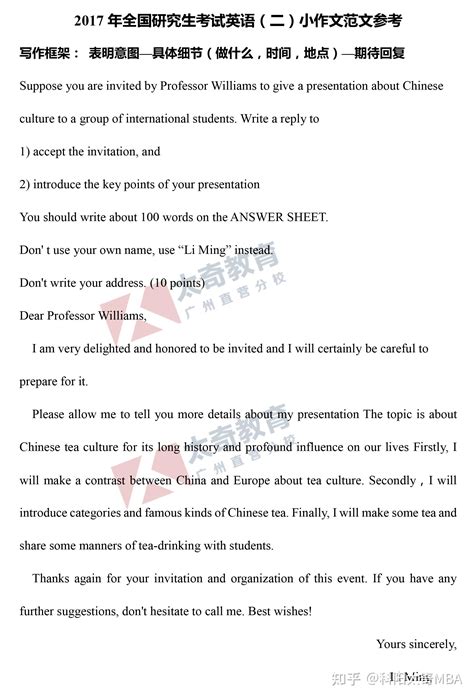
In the pursuit of excellence in the English II section of the postgraduate entrance examination, candidates often seek a comprehensive strategy that transcends the boundaries of specific topics or themes. This essay aims to provide a universally applicable approach that can enhance candidates' performance across various prompts and subjects. Whether the topic revolves around social issues, scientific advancements, cultural phenomena, or personal experiences, the following guidelines can serve as a roadmap to effectively tackle any essay prompt.
Before diving into writing, it's crucial to grasp the essence of the prompt. Analyze the keywords and instructions provided. Identify the central theme, the perspective required, and any specific tasks or questions embedded within the prompt. This initial understanding forms the foundation upon which your essay will be constructed.
Take a few moments to brainstorm ideas related to the prompt. Consider various angles, examples, and arguments that can be incorporated into your essay. Once you have a pool of ideas, organize them into a coherent outline. Divide your essay into introduction, body paragraphs, and conclusion. Each paragraph should focus on a distinct aspect or argument while maintaining a logical flow throughout the essay.
Begin your essay with a captivating introduction that sets the stage for what is to follow. Provide some context on the topic and clearly state your thesis or main argument. Engage the reader with a thoughtprovoking question, a relevant quote, or a startling statistic. The introduction should grab the reader's attention and establish your stance on the topic.
The body of your essay should consist of several paragraphs, each presenting a unique idea or argument supported by evidence and examples. Start each paragraph with a topic sentence that introduces the main point of the paragraph. Follow up with supporting details, such as facts, statistics, anecdotes, or expert opinions, to bolster your argument. Ensure smooth transitions between paragraphs to maintain coherence and clarity.
Anticipate potential counterarguments to your thesis and address them within your essay. Acknowledging opposing viewpoints demonstrates critical thinking and strengthens your argument. However, it is essential to refute these counterarguments with compelling evidence and reasoning, reaffirming the validity of your position.
Conclude your essay by summarizing the main points and reiterating your thesis. Avoid introducing new information in the conclusion; instead, focus on providing a concise synthesis of your arguments. End with a compelling closing statement that leaves a lasting impression on the reader.
Pay close attention to your language choice and writing style. Use a variety of sentence structures and vocabulary to demonstrate your proficiency in English. Avoid repetitive phrases and clichés, opting instead for precise and concise expression. Maintain a formal tone throughout the essay, avoiding slang or colloquial language.
Allocate sufficient time for revising and editing your essay. Review for grammatical errors, punctuation mistakes, and spelling errors. Ensure coherence and cohesion between paragraphs, checking for logical transitions and consistency in argumentation. Seek feedback from peers or mentors to gain valuable insights and perspectives on your essay.
Regular practice is essential for improving your writing skills and familiarizing yourself with different essay structures and topics. Allocate time for timed practice sessions to simulate the examination environment and improve your time management skills. Practice writing essays on a wide range of topics to enhance your versatility and adaptability.
In conclusion, mastering the English II section of the postgraduate entrance examination requires a combination of strategic planning, critical thinking, and linguistic proficiency. By following the guidelines outlined above and consistently practicing, candidates can develop the skills necessary to excel in this challenging aspect of the examination. Remember, success is not just about what you write, but how you write it.

一则关于副部朱芝松被查的消息引起了广泛关注,据报道,朱芝松因涉及某些...

百名英国女性声称因长期使用强生爽身粉而患上癌症,这一事件不仅引起了公...

更换遥控器钥匙的电池。航海家电动尾门就是汽车的电动后备箱,发现电动尾...

亲爱的朋友们,今天我们来聊聊一个备受关注的话题:初次登记结婚有150...

Hello大家好,欢迎来到小蚊子聊车!今天为大家带来2020年10月...